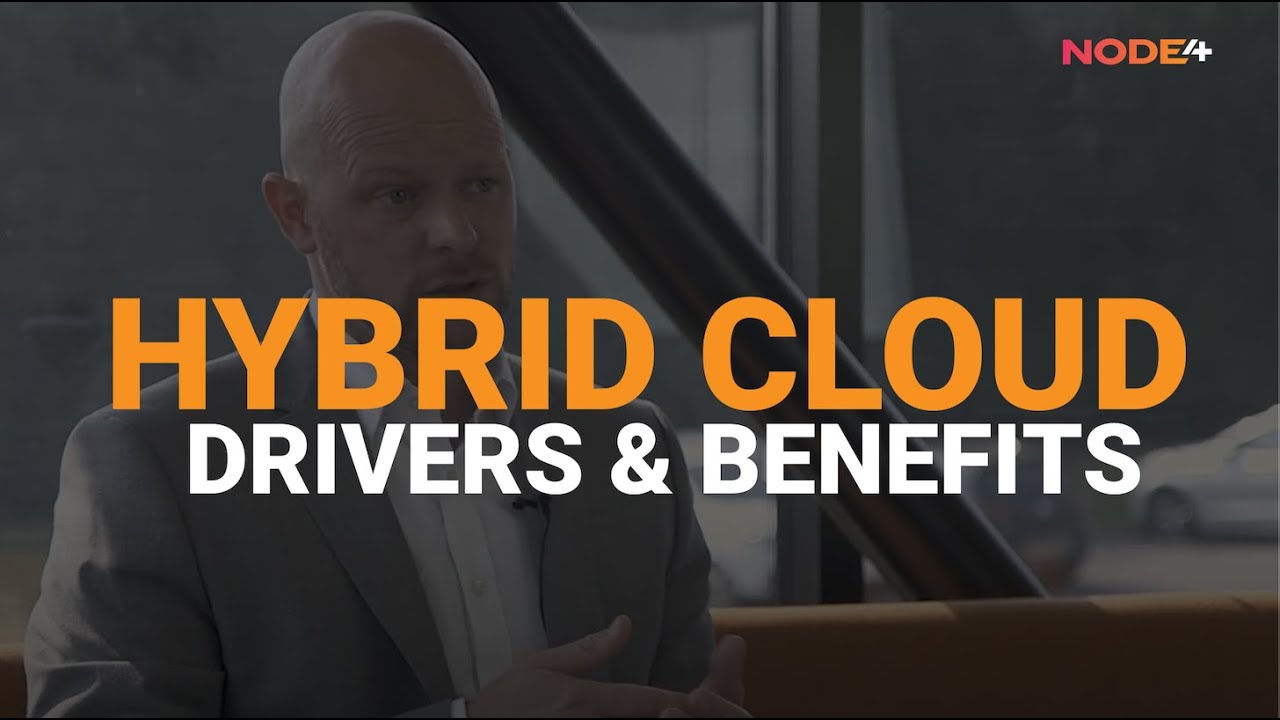Did you know that more than 90 percent of enterprises are now adopting hybrid cloud solutions to improve flexibility and control? With businesses in Brisbane facing rising data demands and strict security rules, finding the right balance between security and efficiency has never been more crucial. Hybrid cloud computing lets organisations customise how they store and manage data, helping them stay competitive and secure in a fast-changing digital world.
Table of Contents
- What Is Hybrid Cloud Computing
- Types Of Hybrid Cloud Models
- How Hybrid Cloud Actually Works
- Key Benefits For Brisbane Businesses
- Risks, Costs And Compliance Factors
Key Takeaways
| Point | Details |
|---|---|
| Hybrid Cloud Definition | A hybrid cloud integrates multiple cloud infrastructures, offering flexibility in data and application portability for businesses. |
| Key Models | The three main hybrid cloud models include Public-Private, Community, and Multi-Cloud Integration, each tailored to specific organizational needs. |
| Operational Benefits | Hybrid cloud computing enables reduced infrastructure costs, enhanced security, and scalability, benefiting small and medium enterprises in Brisbane. |
| Compliance and Risk | Businesses must address data privacy regulations, vendor lock-in risks, and ensure comprehensive security protocols when adopting hybrid cloud solutions. |
What Is Hybrid Cloud Computing
A hybrid cloud is a sophisticated computing environment that seamlessly integrates multiple cloud infrastructures, allowing businesses to leverage the strengths of different cloud platforms. According to Australian Cyber Security Centre, hybrid cloud computing combines two or more distinct cloud infrastructures like public, private, and community clouds to enable flexible data and application portability.
At its core, hybrid cloud computing provides organisations with unprecedented flexibility. By integrating private and public cloud infrastructures, businesses can strategically distribute workloads, enhance security, and optimise resource allocation. Research from the Digital Transformation Agency confirms that this approach allows data and applications to be shared dynamically between different cloud environments, giving businesses more control and adaptability.
Key characteristics of hybrid cloud computing include:
- Seamless integration between different cloud platforms
- Enhanced data mobility and portability
- Improved scalability and resource management
- Customisable security configurations
- Cost-effective infrastructure deployment
For Brisbane-based small to medium enterprises, hybrid cloud computing represents a powerful strategy to modernise IT infrastructure. It allows businesses to maintain sensitive data on secure private clouds while leveraging the cost-effectiveness and scalability of public cloud services. This approach enables organisations to balance performance, security, and economic considerations without compromising operational efficiency.
Types Of Hybrid Cloud Models
Hybrid cloud models represent sophisticated architectures that enable businesses to create flexible, customised computing environments. According to research from the Australian Signals Directorate Blueprint, these models include multiple configurations like Hybrid Federated Search, Hybrid Cloud Search, and Hybrid Site Following, each offering unique integration approaches between on-premises and cloud infrastructure.
Three primary hybrid cloud models emerge as critical strategies for modern businesses:
Here’s a comparison of the main hybrid cloud models and their characteristics:
| Model | Key Features | Best For |
|---|---|---|
| Public-Private Cloud Model | Sensitive data on private cloud Scalable with public cloud Cost-effective | Balancing security & flexibility |
| Community Cloud Model | Shared by similar organisations Collaborative environment Resource sharing | Sector-specific groups Joint projects |
| Multi-Cloud Integration Model | Multiple public/private clouds Vendor independence Workload distribution | Avoiding vendor lock-in Maximising agility |
- Public-Private Cloud Model
- Combines public cloud services with private cloud infrastructure
- Allows sensitive data to remain on secure private networks
- Enables cost-effective scaling using public cloud resources
- Community Cloud Model
- Shared infrastructure for organisations with similar operational requirements
- Provides collaborative computing environment
- Enables resource sharing among sector-specific participants
- Multi-Cloud Integration Model
- Integrates multiple public and private cloud platforms
- Maximises flexibility and prevents vendor lock-in
- Distributes workloads across different cloud environments
Research from the Digital Library of Adelaide confirms that these hybrid cloud models can be implemented using various configurations to enhance performance and reduce operational costs. For Brisbane-based small to medium enterprises, selecting the right hybrid cloud model means balancing technological capabilities with specific business requirements, ensuring seamless data management and operational efficiency.

How Hybrid Cloud Actually Works
A hybrid cloud environment operates like a sophisticated digital bridge, connecting different computing infrastructures seamlessly. According to the Australian Signals Directorate Blueprint, this integration allows systems like SharePoint to extend functionality between on-premises and cloud environments, creating a unified operational ecosystem.
The core mechanism of hybrid cloud involves sophisticated interconnection technologies that enable smooth data and application movement. Research from the Digital Library of Adelaide indicates that hybrid cloud enables organisations to scale their existing infrastructure to public clouds, dramatically improving performance while reducing upfront investment costs.
Key operational components of hybrid cloud include:
- Cloud Management Platform: Coordinates workload distribution
- Software-Defined Networking: Creates secure communication channels
- Identity Management Systems: Ensures consistent access controls
- Data Synchronisation Tools: Maintains real-time information consistency
- Encryption Mechanisms: Protects data during transitions
For Brisbane-based businesses, hybrid cloud works by creating a flexible computing environment where sensitive data can remain on secure private infrastructure while leveraging the scalability and cost-effectiveness of public cloud services. This approach allows companies to dynamically allocate computational resources, ensuring optimal performance and economic efficiency without compromising security or operational integrity.
Key Benefits For Brisbane Businesses
Hybrid cloud computing delivers transformative advantages specifically tailored to Brisbane’s dynamic small and medium enterprise landscape. According to the Australian Cyber Security Centre, these solutions offer significant benefits including cost savings, improved business outcomes, and enhanced operational flexibility.
For local businesses seeking strategic technological advantages, hybrid cloud provides remarkable operational benefits. Research from the Digital Transformation Agency confirms that hybrid cloud computing enables scalable and cost-effective solutions adaptable to fluctuating business demands. These technologies allow Brisbane enterprises to dynamically adjust computational resources without substantial infrastructure investments.
Key benefits for local businesses include:
- Reduced Infrastructure Costs: Minimise hardware and maintenance expenses
- Enhanced Security: Protect sensitive data across multiple cloud environments
- Scalability: Quickly adjust computing resources based on business needs
- Business Continuity: Maintain operations during potential system disruptions
- Competitive Advantage: Access advanced technological capabilities without massive upfront investments
To help Brisbane businesses strengthen their cybersecurity approach, learn more about user security awareness strategies that complement hybrid cloud implementations. By strategically leveraging these innovative technologies, local enterprises can transform their operational efficiency, reduce technological barriers, and create a more responsive, adaptive business infrastructure.
Risks, Costs And Compliance Factors
Hybrid cloud computing introduces complex risk management challenges that organisations must carefully navigate. According to the Australian Cyber Security Centre, businesses must comprehensively consider security risks, compliance requirements, and associated costs when implementing cloud services.
Compliancy represents a critical consideration for Brisbane businesses. Research from the Digital Transformation Agency emphasises that entities must comply with Commonwealth legislation and develop strategic documentation when undertaking cloud-based investments. This means meticulously understanding data protection regulations, maintaining robust security protocols, and ensuring transparent risk management strategies.
Key compliance and risk factors include:
- Data Privacy Regulations: Adherence to Australian privacy laws
- Security Vulnerability Assessment: Regular comprehensive risk evaluations
- Cost Management: Transparent pricing and potential hidden infrastructure expenses
- Data Migration Risks: Potential information loss during transition
- Vendor Lock-in Potential: Limitations in changing cloud service providers
To help businesses navigate these complex compliance landscapes, learn more about IT security compliance strategies that can protect your organisation’s digital infrastructure. By understanding these critical risk factors, businesses can make informed decisions that balance technological innovation with robust security and financial prudence.
Unlock the Full Potential of Hybrid Cloud Computing for Your Brisbane Business
Managing sensitive data while scaling operations can be a tricky balancing act for Brisbane businesses. This article highlights how hybrid cloud computing offers flexible integration of private and public clouds, enhanced security, and cost-effective scalability. Yet, embracing these advanced technologies also brings challenges such as risk management, compliance with privacy laws, and avoiding vendor lock-in. If you’re aiming to boost your operational efficiency without compromising security or breaking the budget, a tailored hybrid cloud strategy is essential.
At IT Start, we understand how overwhelming navigating these complexities can feel. That is why our expert team specialises in delivering proactive managed IT support, cloud solutions, and cybersecurity designed specifically for Brisbane small to medium enterprises. We help you implement hybrid cloud models that align perfectly with your business needs while ensuring compliance and robust protection. Ready to harness hybrid cloud benefits with confidence? Discover how our local Brisbane-based specialists can empower your business by booking a free consultation with IT Start today. Get in touch now to secure a future-proof IT infrastructure that grows with you.
Frequently Asked Questions
What are the main benefits of hybrid cloud computing?
Hybrid cloud computing offers several benefits, including reduced infrastructure costs, enhanced security for sensitive data, scalability to quickly adjust resources, business continuity during disruptions, and a competitive advantage by accessing advanced technologies without significant upfront investments.
How does hybrid cloud computing enhance security?
Hybrid cloud computing enhances security by allowing sensitive data to be stored on secure private clouds while leveraging public cloud resources for less sensitive information. This dual approach helps in creating customizable security configurations tailored to specific business needs.
What types of hybrid cloud models are available?
There are three primary hybrid cloud models: the Public-Private Cloud Model, which balances security and flexibility; the Community Cloud Model, which supports collaborative environments among similar organizations; and the Multi-Cloud Integration Model, which prevents vendor lock-in by integrating multiple cloud platforms.
What compliance factors should businesses consider when using hybrid cloud?
Businesses must consider data privacy regulations, conduct regular security vulnerability assessments, manage costs transparently, address potential data migration risks, and understand the implications of vendor lock-in when implementing hybrid cloud solutions.




